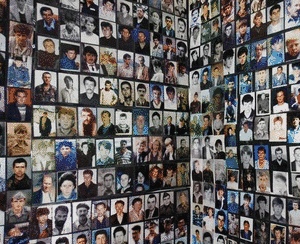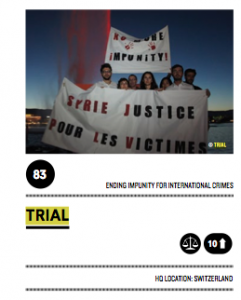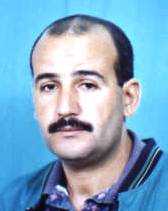Amnesty for Worst Crimes Violates International Law
(Kathmandu, March 22, 2013) – The inclusion of an amnesty provision, which could cover the worst possible crimes, in Nepal’s new Truth, Reconciliation and Disappearance Ordinance, will make it impossible for thousands of victims of gross human rights violations to obtain justice, a coalition of international human rights organizations said today.
The Asian Centre for Human Rights, Human Rights Watch, the International Commission of Jurists (ICJ), and TRIAL pointed to fundamental flaws in Nepal’s new law, passed by President Ram Baran Yadav on March 14, 2013.
“The new ordinance leaves open the door to amnesties for persons implicated in gross human rights violations and crimes under international law,” said Ben Schonveld, ICJ’s South Asia director in Kathmandu. “Amnesties for serious rights violations are prohibited under international law and betray the victims, who would be denied justice in the name of political expediency.”
At least 13,000 people were killed and over 1,300 subjected to enforced disappearance in Nepal’s decade-long conflict between government forces and Communist Party of Nepal (Maoist) combatants. The fighting ended with the signing of the 2006 Comprehensive Peace Agreement, consolidating a series of commitments to human rights.
“Nepal has had years to investigate some 1,300 suspected enforced disappearances during the conflict and thousands of other human rights violations, but it has failed to deliver any credible or effective investigations. The provisions on prosecution contained in this ordinance don’t appear to be strong enough to overcome Nepal’s entrenched practices of safeguarding impunity by withdrawing cases or failing to pursue credible allegations. It does not leave victims with much faith that the commission will fulfill its mandate to end impunity.” Philip Grant, TRIAL Director
However, the government has yet to take steps to ensure that those responsible for crimes under international law during the fighting are identified and prosecuted. International and local human rights groups have consistently decried the government’s efforts to side-step promises of justice and accountability, represented most recently by this new ordinance.
The revised ordinance calls for the formation of a high-level commission to investigate serious human rights violations committed during Nepal’s armed conflict from 1996 to 2006. It grants the commission discretion to recommend amnesty for a perpetrator if the grounds for that determination are deemed reasonable. The government then decides whether to grant an amnesty. There is no definition of what is reasonable.
Confusion over scope of amnesty provision
The ordinance states that “serious crimes,” including rape, cannot be recommended for an amnesty, but it does not define what other “serious crimes” are not subject to an amnesty. Gross violations of human rights, such as extrajudicial killing, torture and enforced disappearance, are not mentioned. Torture and enforced disappearance are not specific crimes under Nepali domestic criminal law.
The organizations expressed concern that the commission’s powers to recommend prosecution may mean little without crimes being adequately defined in law. The final decision on whether to prosecute can only be made by the attorney general, a political appointee of the government, instead of an independent entity. Human Rights Watch, ICJ and TRIAL have previously documented the systematic failures of the Nepali criminal law system to address serious human rights violations.
“Nepal has had years to investigate some 1,300 suspected enforced disappearances during the conflict and thousands of other human rights violations, but it has failed to deliver any credible or effective investigations,” said TRIAL Director Philip Grant in Geneva. “The provisions on prosecution contained in this ordinance don’t appear to be strong enough to overcome Nepal’s entrenched practices of safeguarding impunity by withdrawing cases or failing to pursue credible allegations. It does not leave victims with much faith that the commission will fulfill its mandate to end impunity.”
Call for review and consultation
The organizations called upon the government to establish a mechanism to review and amend the legislation in consultation with victims of human rights abuses and representatives of civil society.
“This ordinance was signed by the prime minister and president in record time without any consultation with conflict victims and civil society,” said Schonveld. “If the government had carried out proper consultations, the result would have been different, and we wouldn’t have an ordinance that entrenches impunity.”
The rights organizations also expressed concern about the ordinance’s heavy emphasis on reconciliation at the possible expense of justice for victims. The ordinance cedes authority to the commission to implement “inter-personal reconciliation” between victim and perpetrator, even if neither the victim nor the perpetrator requests it, which could result in pressure being placed on a victim to give up any claims against a perpetrator. Although the ordinance mentions the need for victim and witness protection, there are no specific safeguards to ensure the safety and security of victims who become involved in reconciliation processes.
Violation of international obligation for political expediency
Under international law, Nepal is obliged to take effective measures to protect human rights, including the right to life and freedom from torture and other ill-treatment. Where a violation occurs, Nepali authorities must investigate, institute criminal proceedings, and ensure victims are afforded access to effective remedy and reparations.
“The passage of this ordinance is just the latest example of the Nepali government’s cynical willingness to trade meaningful justice and accountability for political expediency,” said Brad Adams, Asia director at Human Rights Watch. “The government is kidding itself if it thinks it can ignore the voices of Nepal’s thousands of victims of human rights abuses. Nepal needs meaningful government initiatives to address its human rights problems, not the veneer of justice that this flawed ordinance represents.”



 The arrest and disappearance of Mr. Mezine occurred within the general context of the enforced disappearance of thousands of Algerian citizens at the hands of the army or the State security forces during Algerian civil war from 1992 to 2002.
The arrest and disappearance of Mr. Mezine occurred within the general context of the enforced disappearance of thousands of Algerian citizens at the hands of the army or the State security forces during Algerian civil war from 1992 to 2002.